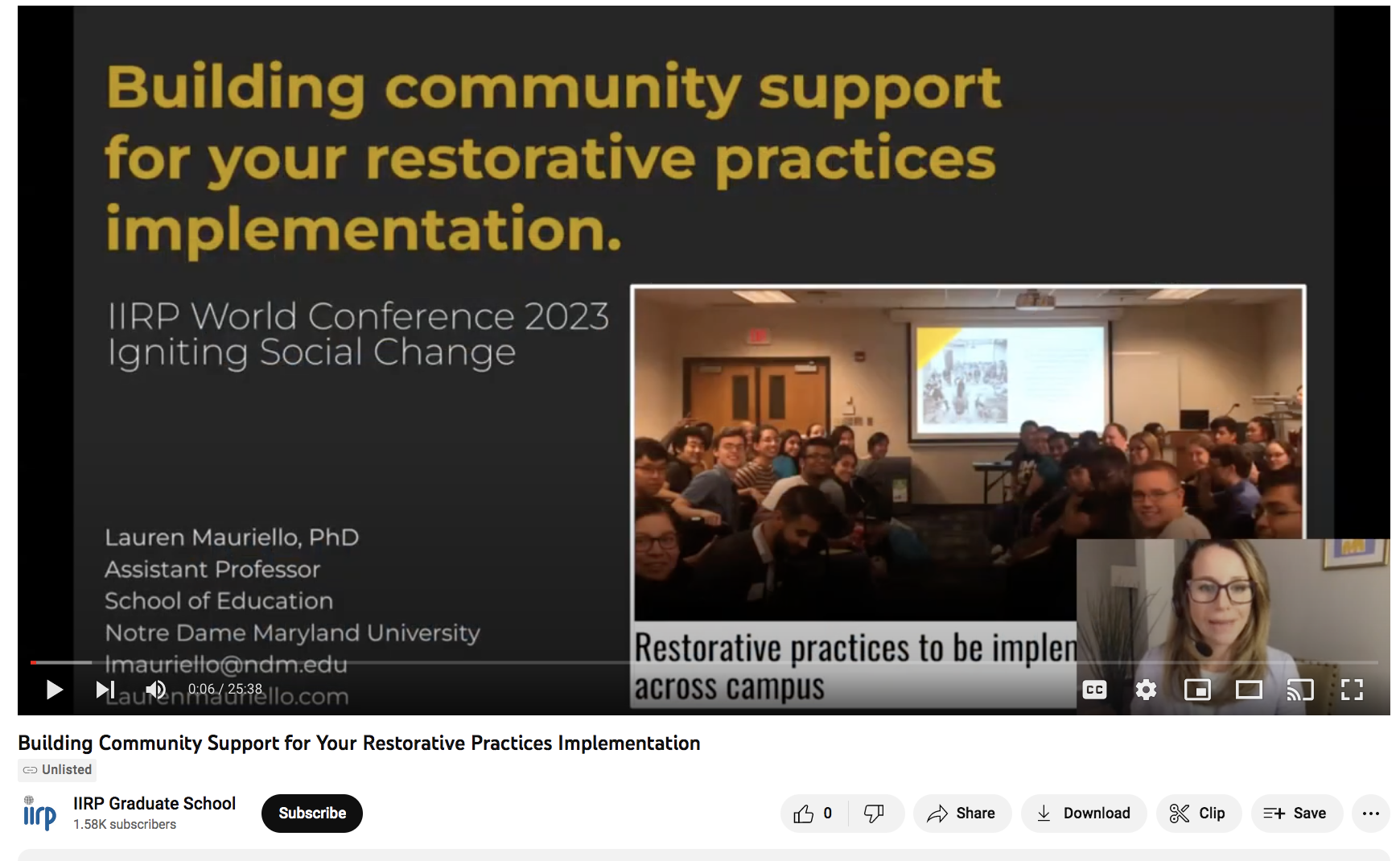-
Lauren publishes and speaks on topics such as culture-building, restorative approaches to leadership and community development in schools and the workplace.
Blending her background in teaching, policy and management, she:
-translates complex topics into easily understandable content for non-expert audiences.
-provides research-based content that is engaging, practical, and tailored to meet the of participants.
-creates impactful programs that foster belonging, wellbeing, and mental health in schools, teams, and communities.
As a seasoned trainer and consultant, she regularly provides consultation on the integration of restorative practices to improve the quality of educational, community, and workplace environments.
Lauren’s writing focuses on practitioner-focused publications and conferences including authoring a chapter in an edited textbook published by ASCA and the Association for College and University Housing Officers - International (ACUHO-i) on student conduct administration, contributions to the the Association of Student Conduct Administrators (ASCA) blog “Reflections,” the International Institute for Restorative Practices annual conferences and symposiums.
Samples of Lauren’s work can be found by clicking the thumbnails on this page.
-
Lauren’s research interest is the evaluation and implementation of education policy. Her most recent research projects focus on the implementation of restorative practice and restorative justice programs in K-16, and their implications for equity and well-being. Her dissertation modeled community support for educational interventions in Baltimore, and the efficacy of education policy in reaching equity and wellbeing outcomes in K-16.
-
Selected Scholarly Work
Professional Background
Keynote panelist for ECornell’s Alternative Dispute Resolution Series
Educators who adopt this style of reflective pedagogy guide students through theory and practice in ways that invite a co-creation of knowledge. This keynote explored the pedagogical and faculty-led implications for RJP in higher education. Watch the recorded panel now by filling in your name and email under “register now”.
Motivating my passion for teaching and training is a desire to help others develop policy, leadership, and communication skills to excel as educators and leaders. While this begins with the needed skill set for individual leaders, it also encompasses the broader societal implications of an increasingly complex policy landscape.
As an Assistant Professor with the School of Education at Notre Dame of Maryland University, I teach education policy, quantitative methods research methodology and educational leadership courses in the Masters and PHD programs.
In addition to my teaching, scholarship and services responsibilities, I am committed to the following:
Centering the learner's voice as central to the learning experience
Developing connections and community within the learning environment (online or in person)
Integrating interactive e-learning into online synchronous and asynchronous content delivery.
Prior to joining NDMU’s faculty, I taught undergraduate classes as a lecturer in the Sociology, Anthropology, and Criminal Justice department at Towson University, and taught graduate students as an instructor with the Community Leadership Graduate Program at the University of Maryland Baltimore County.
I came to teaching and education policy research after a career in higher education administration. I held positions in the areas of Residential Education, Assessment, Student Conduct, and Title IX. Additionally, I consult in K-16 on launching restorative practices in classrooms, workplaces, and co-curricular environments.
I earned a Ph.D. in education policy at the University of Maryland Baltimore County, and an M.Ed. in counseling psychology/college student personnel administration from James Madison University.
Selected Scholarly Work continued
ACPA Commission for Housing and Residence Life Sponsorship, 2019






